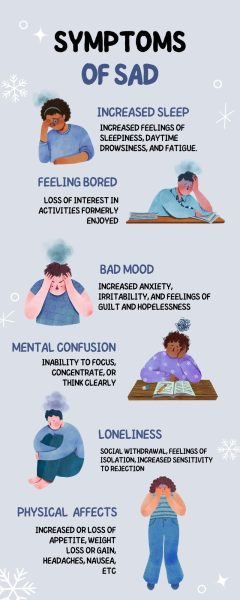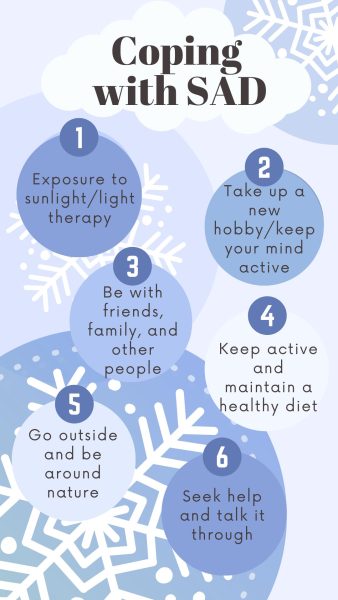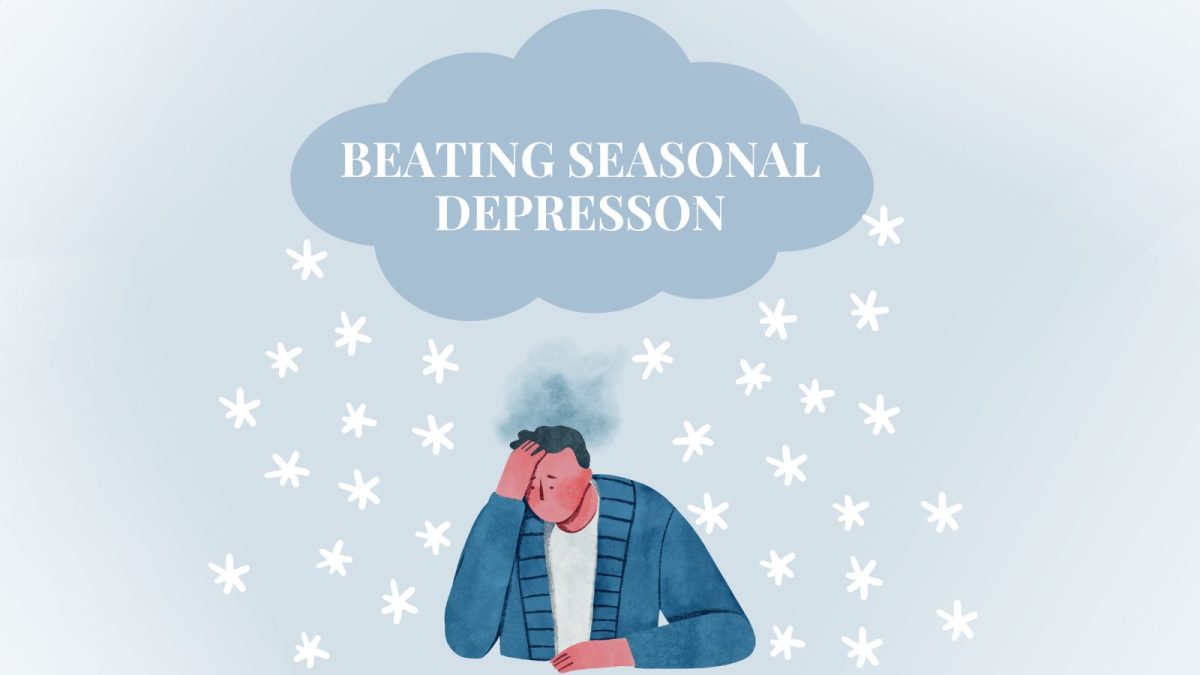 Everyone struggles with mental health some time in their lives, and students are no exception. Seasonal Affective Disorder (SAD), more commonly known as seasonal depression or “winter blues,” affects many students here at Mount Vernon. With the colder months approaching, it’s reasonable to wonder what you can do to try to prevent or limit the struggle.
Everyone struggles with mental health some time in their lives, and students are no exception. Seasonal Affective Disorder (SAD), more commonly known as seasonal depression or “winter blues,” affects many students here at Mount Vernon. With the colder months approaching, it’s reasonable to wonder what you can do to try to prevent or limit the struggle.
In order to manage seasonal depression, you have to know the general causes. Fall-onset SAD is thought to be caused by the lack of daylight resulting in a chemical change in the brain. Serotonin levels lower and melatonin levels rise, and with less light from the sun, less vitamin D is being produced in your body, so you’re more prone to feeling depressed.
For many students suffering from seasonal depression, feelings of isolation and a noticeable increase in the repetitiveness of daily life cause a significant decrease in mood. After the excitement of summer and fall time activities, life seems to be a cycle of going to school, coming home, and sleeping. The holidays bring lots of family and friends together, but the feeling once everyone is gone can be hard for a lot of people,
With everything pulling down your mood, it’s no wonder seasonal depression is so common. So what can we do to keep the winter blues at bay? This is what students at Mount Vernon High School had to say.

Keeping lights on later in the day can help maintain a consistent sleep schedule and minimize variation in melatonin levels. Taking vitamin D supplements can also help to make up for the lack of sunlight and boost your mood.
Being loved ones and having someone to confide in can always help in difficult times. Warding off negative feelings in winter by being with friends and family is a must to keep spirits up.
Picking up a new hobby or extra shifts at work are great ways to keep your mind occupied. Doing things that keep you busy or make you happy will help you feel better!
It’s important to know you’re not alone, and there is always help available. While some of these tips may improve feelings of depression, they won’t necessarily get rid of them. Mental health improvement won’t happen overnight, and when it comes down to it, nothing is going to replace therapy and medication when it is needed. If seasonal depression is severely impacting your daily functioning in work, school, or social environments, it may be time to reach out to a professional.







